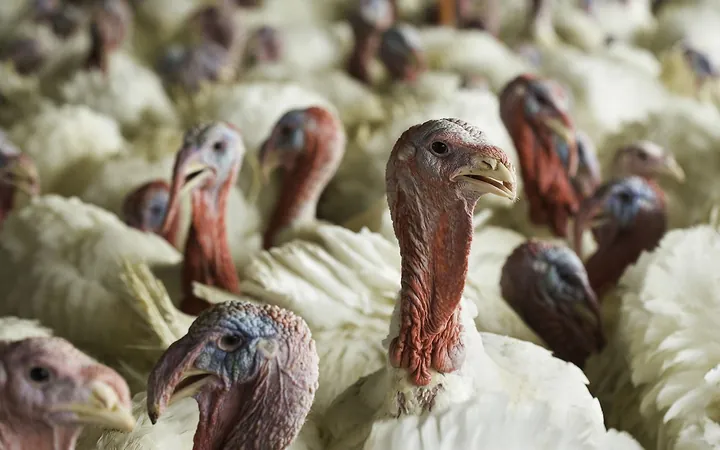
Urgent Call for Stricter Bird Flu Controls After First U.S. Death Raises Alarm
2025-01-08
Author: Benjamin
Urgent Call for Stricter Bird Flu Controls After First U.S. Death Raises Alarm
In a stark warning on January 8, the World Organization for Animal Health (WOAH) urged enhanced measures to combat the spread of bird flu following the tragic first human death attributed to the virus in the United States. This alarming incident underscores the potential risks posed by avian influenza, which is wreaking havoc on poultry populations and driving up food prices globally.
Emmanuelle Soubeyran, the Director General of WOAH, emphasized the critical need for proactive management to mitigate risks at the animal source. She stated, “This situation really highlights the importance of managing risk at the animal source, which is essential to prevent the spread of bird flu and its possible transmission to humans.” Her remarks reflect growing concern about the unprecedented outbreak, which has seen the virus infect a range of species, including dairy cattle in the U.S.
The favored carriers of bird flu are often migrating wild birds, which can transmit the virus to domestic poultry and in rare cases, to humans, primarily farm workers. Soubeyran warned that a lack of awareness could lead to increased infections, facilitating virus circulation among various animal populations such as poultry, pigs, and cattle. This presents a significant risk of mutation that could potentially pave the way for a new pandemic.
As a preventive measure, Soubeyran has reiterated the need for widespread vaccination in addition to existing control strategies. “If used correctly, it will reduce viral circulation and therefore exposure to humans,” she noted, highlighting vaccination as a foundational strategy to curb the spread of avian influenza.
However, many major poultry exporting nations, with France as an exception, have been hesitant to adopt vaccination protocols—fearing that doing so might signal a prevalent issue and invite trade restrictions from other countries. This reluctance puts not only the poultry industry but also public health at risk.
As the situation develops, experts are calling for immediate and coordinated global action to monitor and control avian flu, thereby ensuring that this deadly virus remains contained and human health is safeguarded. The question remains: will nations act swiftly enough to prevent a potential crisis?



 Brasil (PT)
Brasil (PT)
 Canada (EN)
Canada (EN)
 Chile (ES)
Chile (ES)
 Česko (CS)
Česko (CS)
 대한민국 (KO)
대한민국 (KO)
 España (ES)
España (ES)
 France (FR)
France (FR)
 Hong Kong (EN)
Hong Kong (EN)
 Italia (IT)
Italia (IT)
 日本 (JA)
日本 (JA)
 Magyarország (HU)
Magyarország (HU)
 Norge (NO)
Norge (NO)
 Polska (PL)
Polska (PL)
 Schweiz (DE)
Schweiz (DE)
 Singapore (EN)
Singapore (EN)
 Sverige (SV)
Sverige (SV)
 Suomi (FI)
Suomi (FI)
 Türkiye (TR)
Türkiye (TR)
 الإمارات العربية المتحدة (AR)
الإمارات العربية المتحدة (AR)